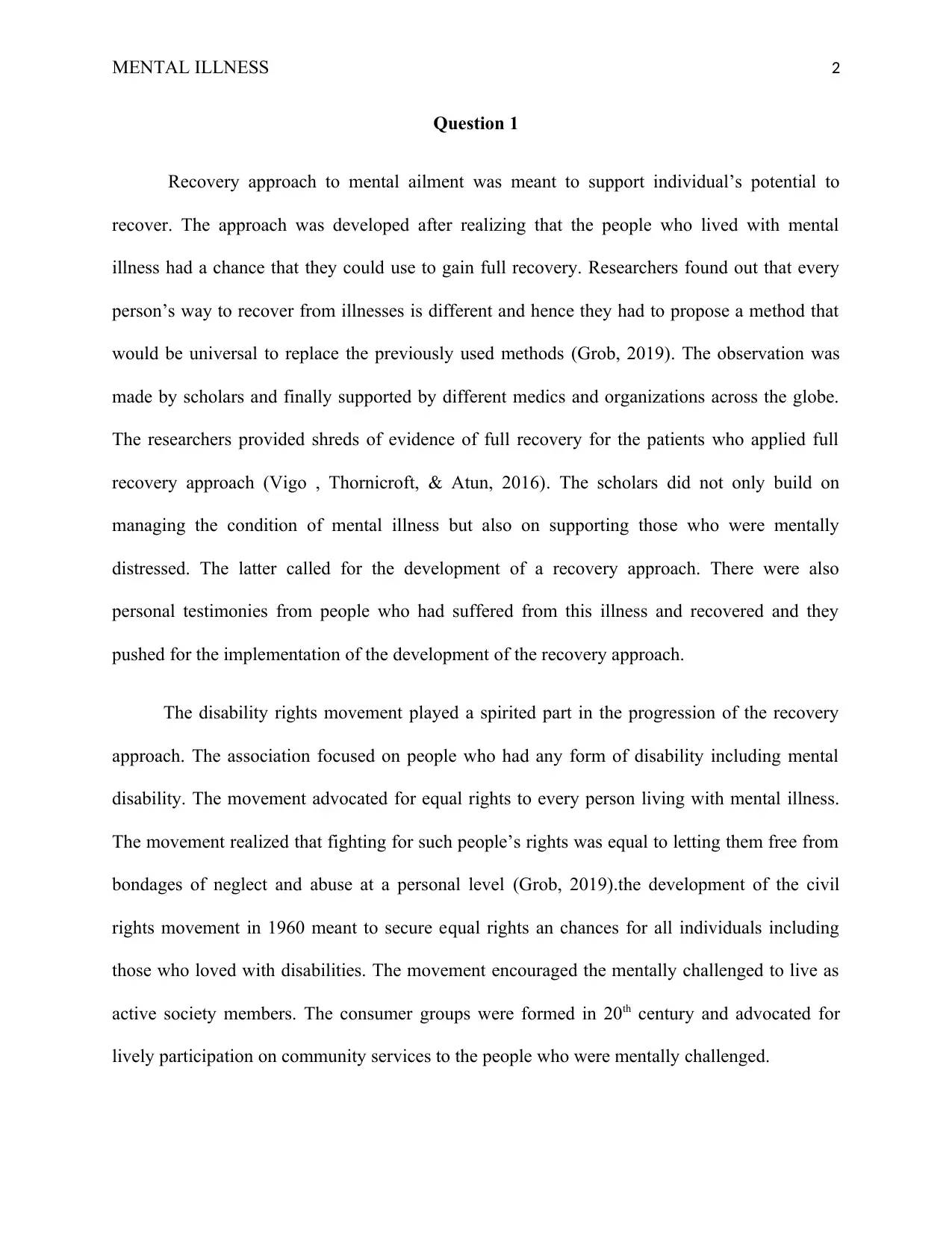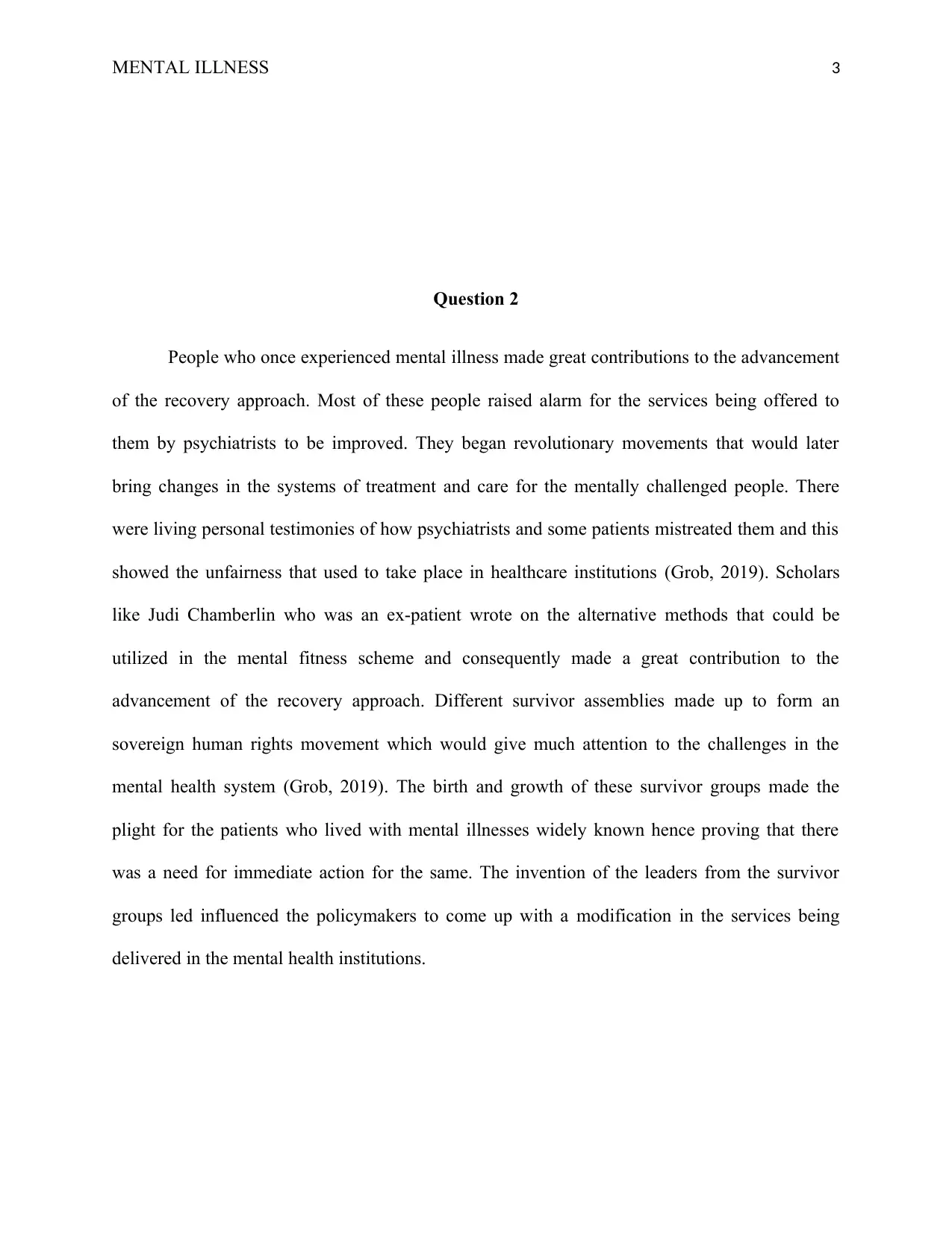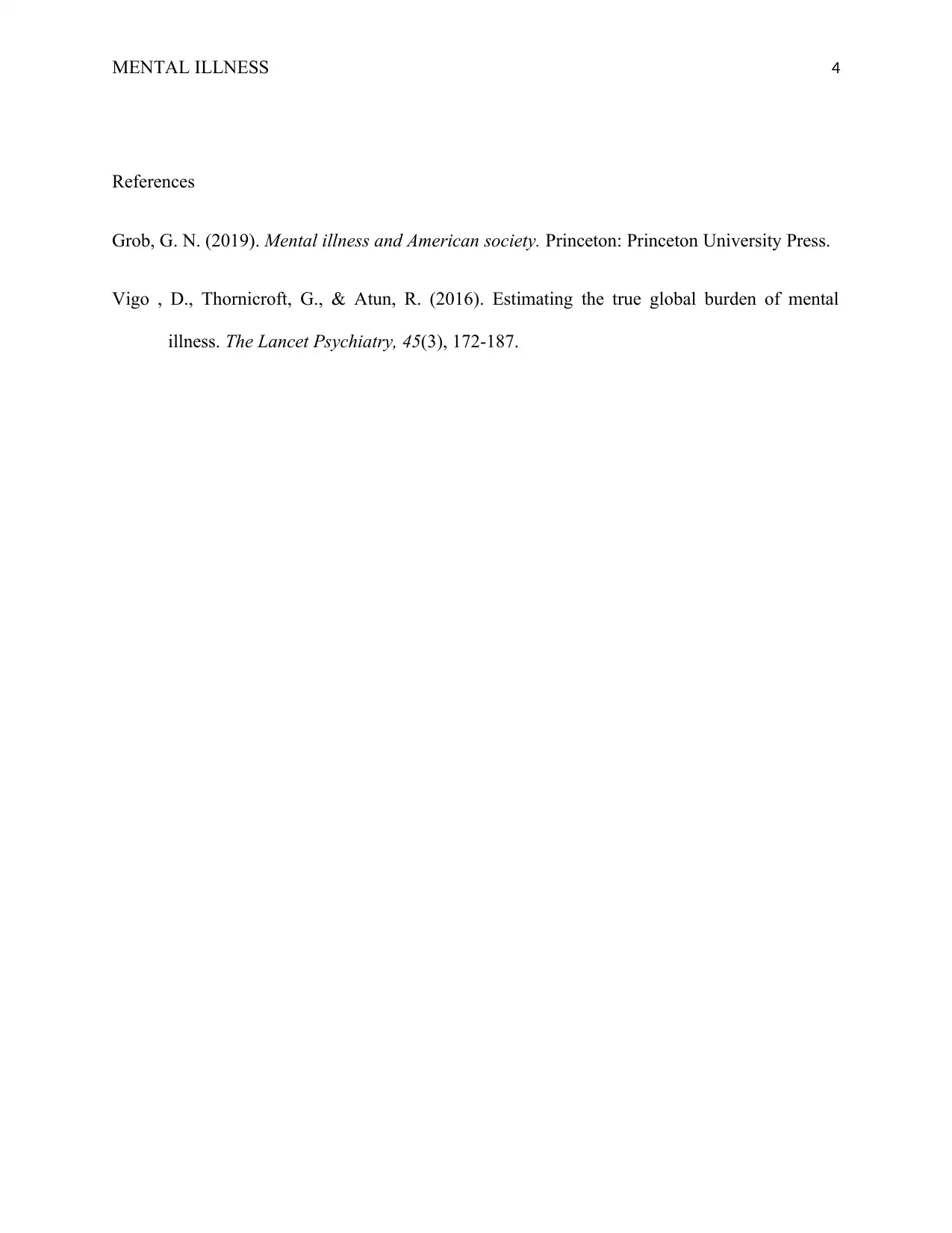The Evolution and Impact of Mental Illness Recovery Approach: A Report
VerifiedAdded on 2022/10/04
|4
|626
|31
Report
AI Summary
This report delves into the mental illness recovery approach, tracing its evolution and the factors that contributed to its development. It begins by highlighting the shift towards a recovery-oriented approach, emphasizing the potential for individuals with mental illness to achieve full recovery. The report examines the influence of the disability rights movement and the civil rights movement in advocating for the rights and inclusion of individuals with mental health conditions. It also discusses the contributions of individuals who have experienced mental illness, such as Judi Chamberlin, and the formation of survivor groups, which played a critical role in advocating for changes in mental health care. The report references scholarly works to support its claims, providing a comprehensive overview of the recovery approach and its impact on the treatment and support of individuals with mental illness.
1 out of 4











![[object Object]](/_next/static/media/star-bottom.7253800d.svg)